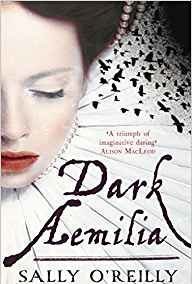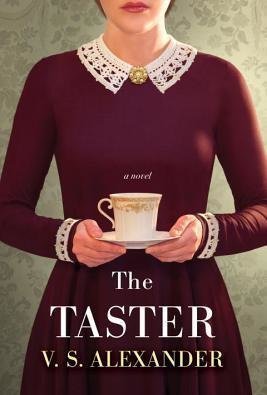
The Taster
Book
Amid the turbulence of World War II, a young German woman finds a precarious haven closer to the...
Fiction Historical Fiction WW2
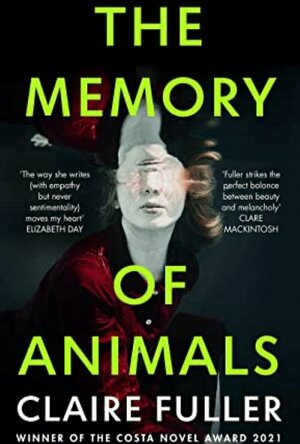
The Memory of Animals
Book
Neffy is a young woman running away from grief and guilt and the one big mistake that has derailed...
Speculative fiction Literary fiction apocalyptic
ClareR (6062 KP) rated Young Elizabeth: Princess. Prisoner. Queen in Books
Jun 3, 2024
Elizabeth was far too clever to be caught, and that comes across really clearly. She was her parent’s daughter: clever, resilient and she knew the best people to have around her. These personality traits and the things that happened to her, formed the young woman and queen she would later be.
Nicola Tallis read through, and included, a lot of Elizabeth’s personal correspondence. It must have been exhausting for Elizabeth. She was constantly under suspicion of treason. She may well have been though, and she certainly didn’t conform wholeheartedly to Catholicism as Mary wanted her to.
This was such a fascinating read - and I’m notoriously picky with non-fiction. I often find it dry and hard to concentrate on, but not with Young Elizabeth. It was riveting, and held my attention from start to finish!
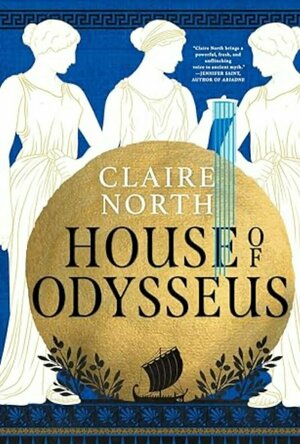
The House of Odysseus
Book
From the author of the critically acclaimed Ithaca - A Sunday Times Historical Fiction Book of the...
Historical fiction Greek mythology
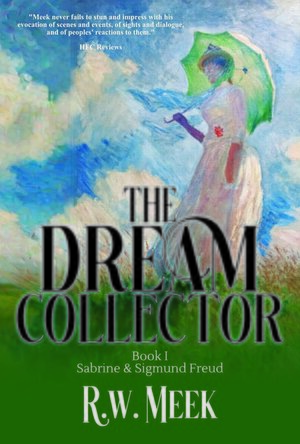
The Dream Collector (Sabrine & Sigmund Freud #1)
Book
The Dream Collector immerses the reader into the exciting milieu of late 19th Century Paris when art...
Literary Fiction Historical Fiction
Marylegs (44 KP) rated Dark Aemilia (UK Edition) in Books
Aug 14, 2019
Unfortunately as I havent ever read historical fiction before I dont really have any point of reference for comparison. But what I will say is that I thoroughly enjoyed how realistic this book felt, but still was able to bring in completely fictitious elements of magic and witchcraft. Sam OReilly has managed to bring in these elements, which appealed to my love of fantasy, without being over the top. I particularly enjoyed the time when London was under the grips of the plague and thought it was just so well written and explained. At no point did I feel lost in descriptions, I was there, with Aemilia and that poor woman just couldnt catch a break.
There is mature content it is an adult story of love, so yes there is sex. I personally have no issue with this and believe it to be an integral addition to this story. It is done well and doesnt feel forced or overdone. I am struggling to put into words how much I enjoyed this book, I will read it again and I would recommend it. I will now even consider reading other historical fiction that I had not thought I would enjoy.
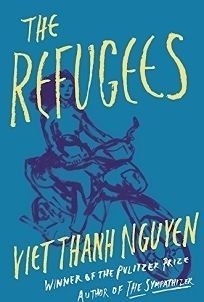
The Refugees
Book
From the winner of the Pulitzer Prize for Fiction, 2016 'A powerful antidote to all the...
AmyBee (4 KP) rated The Bell Jar in Books
Sep 5, 2018
The Bell Jar is narrated in a similar vein to and is quite reminiscent of Virginia Woolf's novel 'Mrs Dalloway', although it has a decidedly more risqué tone as the narrator talks in great detail about subjects which would not have been deemed acceptable in the 1920's (such as losing her virginity!).
What particularly gripped me about this novel is that Esther's mental illness seems to sneak up on her and this is reflected in the novel, as it almost seems to take the reader by surprise that this seemingly normal young woman is falling deeper and deeper into her illness.
Mental health stigma is also clearly represented in the novel, as it almost seem is at points that Esther's illness is treated as a joke, and definitely not taken seriously by most. It's also interesting to read about the archaic means of treatment for mental health sufferers eg Electroconvulsive Therapy (ECT) AKA Electroshock therapy, and it's aftermath.
All in all, a very thoroughly enjoyable read. Highly recommended for lovers of classic literature surrounding mental health issues.

Past Due for Murder
Book
Has a curse fallen on the small town of Taylorsford, Virginia? After a young woman goes missing...
Fiction Mystery Cozy

Nobody's Baby but Mine
Book
From USA Today Bestselling Author, Gloria Silk this is a gripping, romantic and sensuous novel of...
Adult Contemporary Romance

